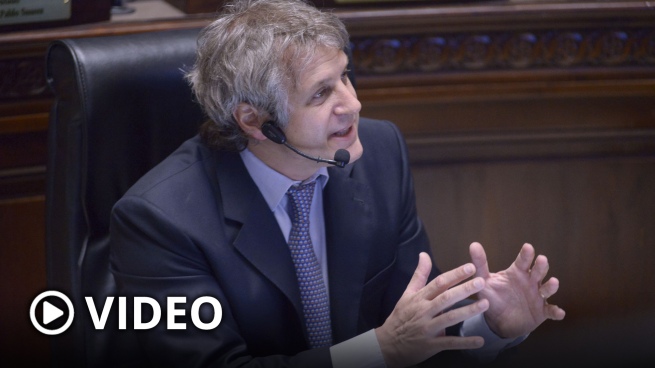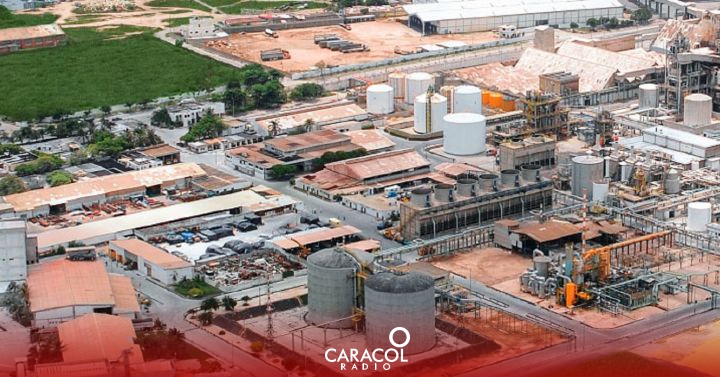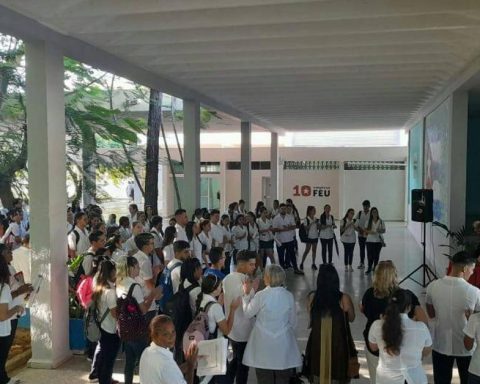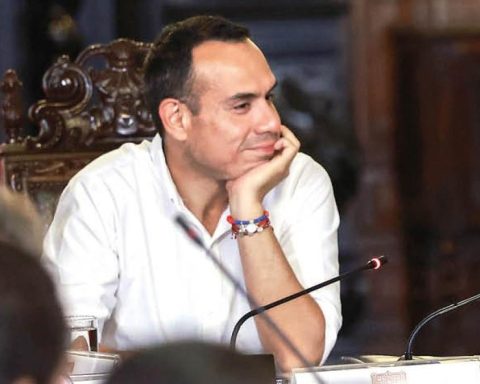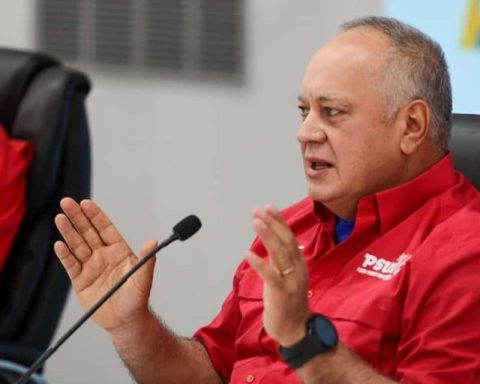The head of the Buenos Aires Cabinet, Felipe Miguel, renewed on Tuesday the complaint of the local administration for the “removal” of the co-participation funds, defended the prohibition of inclusive language in schools and assured that the delivery of social subsidies in the City is ” transitory and conditioned” given that “infinite assistance reproduces poverty”.
The official’s statements were made in a special session of the Legislature intended to listen to the six-monthly report on the government management led by Horacio Rodríguez Larreta, during which Miguel reviewed the public policies in execution, advanced some axes and made a call to “defend ” to the jurisdiction “of the attacks of the central power”.
“It is difficult to understand that in this house there is no unanimity when the national government takes away from the City the necessary resources for its security,” he said and asked “if anyone” knew “where are the $160 billion” that, in his opinion, they were taken from the district and should be assigned to the Security area.
The official’s presentation lasted for more than an hour in the session room, after which the round of consultations with legislators, who, strictly speaking, had already sent some 2,400 questions in advance, was given. linked to the measures adopted by the Buenos Aires Government.
In the session room, meanwhile, the members of the Frente de Todos bloc placed yellow posters in front of their benches with the phrases “The Lie Doesn’t Stop” Y “You pay for the campaign” in allusion to the official slogan of “The Transformation Does Not Stop”.
“Let it be clear: assistance must always be transitory, direct and conditional, never a permanent solution. Infinite assistance reproduces poverty”Philip Michael
In this framework, the official began his speech with the defense of the prohibition of the use of inclusive language in schools, implemented weeks ago by the local Ministry of Education, by ensuring that “If kids have trouble reading straight, it’s not the time to debate changing letters”.
“The educational evaluations showed us that the worst results were given in reading comprehension where, on average, we went back almost four years. For this reason, along with these measures, we decided to regulate the use of the e, the x and the at sign by of teachers during the teaching process and in institutional communications,” he said.
Subsequently, it ratified the works on the Costanera Norte, on the property of Salguero Coast; and the South, in the former Boca Juniors Sports Citywhere two real estate developments; while he maintained that the riverbank is going to “become parks, gastronomic venues, places to play sports, cultural proposals and a beach open all year round.”
In matters of planning and urban mobilitysaid that they will continue with the installation of more “green streets” in different neighborhoods, while they will advance with the works of “transformation of the Historic Center with the renovation of 72 blocks” of the zone with high patrimonial value and announced that in November “the first shared street of the City, Libertador Avenue” will be enabled.
In another section of the report, the official said that the Buenos Aires administration “permanently reviews” the subsidies that provides social aid and warned that “when appropriate, they are discharged”.
“Let it be clear: assistance must always be transitory, direct and conditional, never a permanent solution. Infinite assistance reproduces poverty,” he added.
The last report was last December and, on that occasion, Miguel received nearly 1,900 questions from legislators in the previous days, the majority referring to the handling of the health crisis generated by the coronavirus pandemic.
